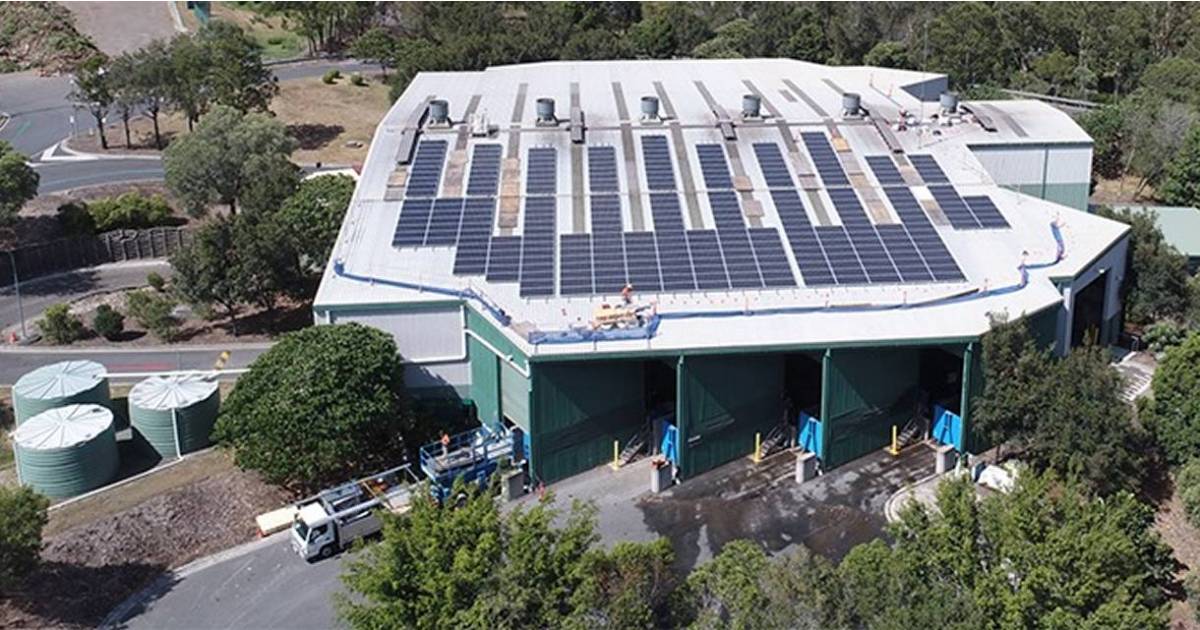
From libraries to cemeteries, dozens of Brisbane City Council sites now have solar power system installations.
According to Lord Mayor Adrian Schrinner, more than 7,000 solar panels have been installed for a collective capacity of almost 2.4 megawatts. That’s enough to generate around 3,642,000 kilowatt-hours of clean electricity a year, or around 3.64 gigawatt-hours – the equivalent to the annual consumption of approximately 667 households.
“We are proud to be certified carbon neutral, so we are constantly looking at ways to reduce our footprint and rooftop solar is one way we can have a real and direct impact,” Cr Schrinner said.
As well as slashing emissions, these solar panels would also be helping to slash energy costs.
In addition to installing solar panels on its assets, Brisbane City Council also purchases renewable energy – 970,000 megawatt hours of electricity from renewable sources since 2003.
Council has been taking other steps to reduce its carbon footprint, such as through landfill gas capture and combustion. As has been the case with many local governments, it has also turned to more energy efficient lighting; retrofitting 25,000 street lights and where possible, LED lamps are used as replacement lamps in street and other public lighting applications.
For emissions it hasn’t been able to address, Council has offset more than 1.8 million tonnes since attaining carbon neutral status for its operations in 2017; using offsets complying with the Australian Government’s Climate Active Carbon Neutral Standard for Organisations.
“We’re passionate about creating a clean and green Brisbane, so will continue to investigate ways of working better, more efficient and reducing our carbon footprint,” said Mayor Schrinner.
More broadly across the Brisbane City local government area – home to around 1.27 million people – Council is also supporting not-for-profit organisations and sporting clubs to reduce their emissions through various programs.
Brisbane City LGA A Solar Energy Powerhouse
Aside from Council’s efforts, Brisbane City LGA also boasts a bunch of PV systems on the rooftops of homes and businesses within its boundaries. Approximately 38.2% of dwellings have had solar installed according to an Australian Photovoltaic Institute estimate; for a collective installed capacity to the end of March of 761,856 kW.
SolarQuotes’ solar calculator used with its default settings indicates a 6.6kW solar system installed in Brisbane has a simple payback time of an estimated 4 years and 4 months. There are great savings on electricity bills to be had through installing panels – and plenty of good solar installers servicing Brisbane for homeowners and businesses to choose from.
Trivia – Council-operated arts and cultural hub Brisbane Powerhouse, located in the inner northern riverside suburb of New Farm, was originally a coal-fired power station operating between 1928 and 1971 that supplied electricity for Brisbane’s tram network. The site still generates power, but clean energy from the 100kW solar power system installed on its rooftop in 2015.

 RSS - Posts
RSS - Posts



Hi Michael, I think you may have missed a zero somewhere, the whole of Brisbane homes having 761,856 Kw, but BCC having 2.4 megawatts, with only 7,000 panels. That’s almost three and a half times Brisbane homes.
Mark